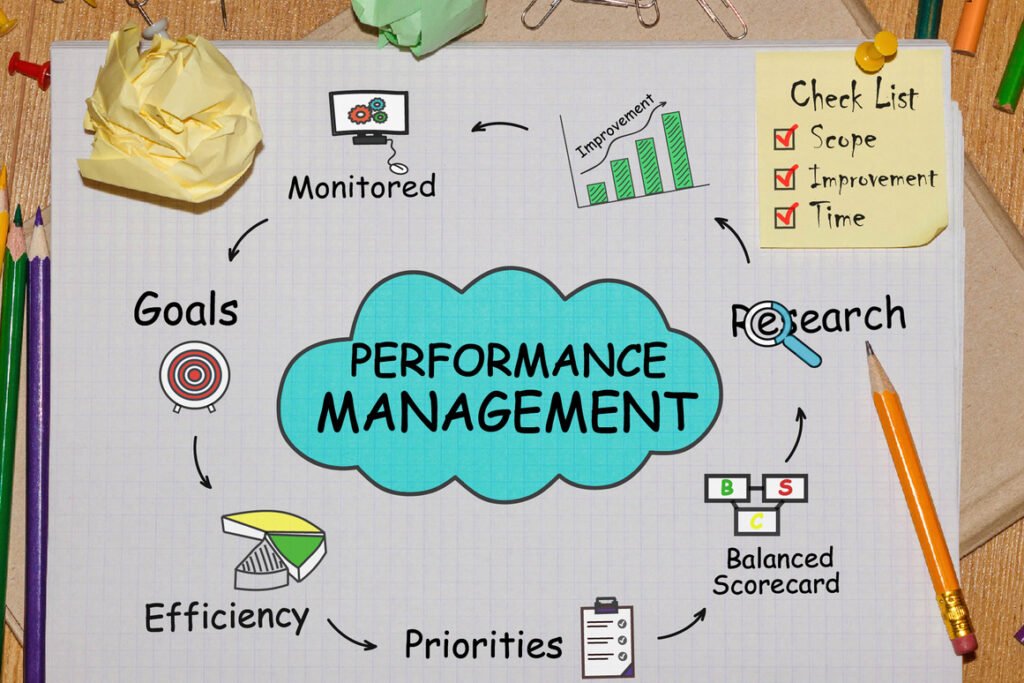Performance Management


Performance Management is the heartbeat of a high-functioning organization. It’s not just about evaluating results; it’s about empowering employees to grow, align, and thrive. Let’s break this down into three parts: introduction, impact on employees, and training program coverage.
🧭 Introduction to Performance Management
Performance management is a continuous, strategic process that helps align individual goals with organizational objectives. It involves setting clear expectations, monitoring progress, providing feedback, and fostering development.
Unlike traditional performance appraisals, modern performance management is:
- Ongoing, not annual
- Development-focused, not just evaluative
- Collaborative, involving managers and employees as partners
Its purpose is to create a culture of accountability, clarity, and continuous improvement, where every employee understands their role in driving success.
🌟 Impact of Performance Management on Employees
When done right, performance management transforms how employees work, feel, and grow. Here’s how it makes a difference:
1. Clarity and Direction
- Employees understand what’s expected of them and how their work contributes to the bigger picture.
- These boosts focus and motivation.
2. Continuous Feedback and Growth
- Regular feedback helps employees improve in real time.
- It encourages a mindset of learning and adaptability.
3. Increased Engagement and Ownership
- Employees feel more involved in goal-setting and decision-making.
- They take greater responsibility for outcomes.
4. Better Career Development
- Performance conversations identify strengths, gaps, and growth opportunities.
- Employees receive support for upskilling and advancement.
5. Higher Productivity and Accountability
- Clear goals and KPIs drive performance and reduce ambiguity.
- Employees are more likely to meet deadlines and deliver quality work.
6. Improved Well-being and Job Satisfaction
- Constructive feedback and recognition boost morale.
- A fair and transparent system reduces stress and workplace tension.
According to research by CIPD, employees who experience systematic performance management report higher levels of task achievement, well-being, and engagement compared to those without it.
If you’re planning to roll this out, we would be happy to help you design a customized curriculum or even draft sample lesson plans. Want to co-create a roadmap tailored to your organization’s performance culture? call us today…